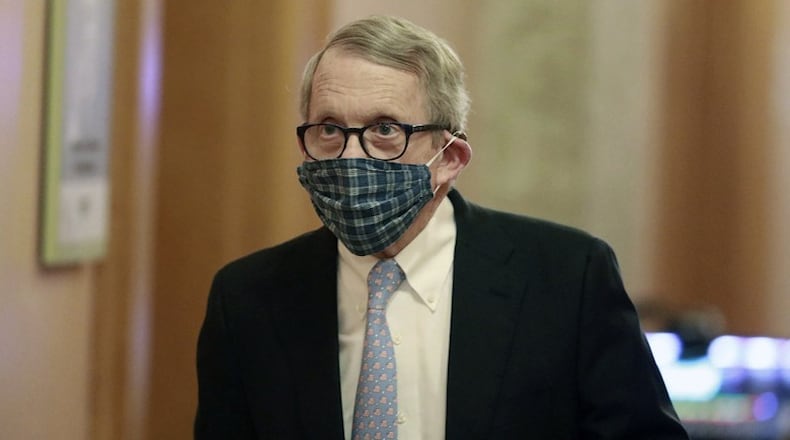Hey Ohio! What did you think of @GovMikeDeWine's #COVID19 address? https://t.co/dqgSuQ4UVl
— Laura Bischoff (@lbischoff) July 15, 2020
Senate Bill 55 called for reducing the penalties for violating a state health department order regarding a pandemic, epidemic or bioterrorism event to a minor misdemeanor with a maximum fine of $150.
Currently, such violations are second degree misdemeanors that are punishable by up to 90 days in jail or up to a $750 fine.
The bill also would have reduced the penalties for violating a local health department order designed to prevent or restrict disease. Under the bill, a first offense would bring a warning and subsequent offenses could bring fines up to $100.
Overriding a gubernatorial veto requires a three-fifths majority vote in both the House and Senate and can be done any time before the end of the two-year legislative session in December. The override must start in the Senate since it’s a Senate bill.
SB55 passed the House on a 72-23 floor vote May 6 — well above the 60 votes needed for a veto override. It gained final approval on June 30 in the Senate on a 18-10 vote, with five members absent. Twenty votes are needed in the Senate for an override.
Senate President Larry Obhof, R-Medina, said his caucus will hold an internal discussion about whether to hold a veto override vote.
Ohio House Speaker Larry Householder, R-Glenford, has been a vocal supporter of the bill.
“I am deeply troubled that the administration has decided to perpetuate their desire to have the power to imprison Ohioans for violating orders. Currently, these health orders are being used regarding the coronavirus, but they could also be used for anything this administration, or a future administration, might perceive as a threat to the public’s health or safety, including the people’s right to possess firearms,” Householder said in a written statement.
While some advocate that gun violence be treated as a public health issue, firearms policies are not covered in SB55.
He noted that the bill passed with bipartisan support and asserted that the bill wouldn’t undermine health departments.
“Instead, it ensured Ohioans don’t face criminal sanctions for innocent, accidental violations of pandemic-related health department orders,” Householder said.
State law on the books since 1886 gives the state health director broad powers to order isolation and quarantine as a means to protect public health. Enforcement can be carried out by state and local heath departments and law enforcement.
During the coronavirus emergency, DeWine and his now former Ohio Department of Health Director Dr. Amy Acton issued orders that closed the polling places during the March 17 primary; shut down K-12 schools as well as bars and restaurants; prohibited mass gatherings; and closed hair salons, barbers and other ‘non-essential’ businesses. The orders were designed to slow the spread of the coronavirus so that Ohio’s health care system wouldn’t be overwhelmed with cases.
Some lawmakers pushed back against the orders and demanded that Ohio reopen the economy and allow individuals to make choices about school, work and socializing.
It marks the first time DeWine has used his veto powers to reject an entire bill. He previously has used his line-item veto powers to remove provisions in the state budget bill.
About the Author


